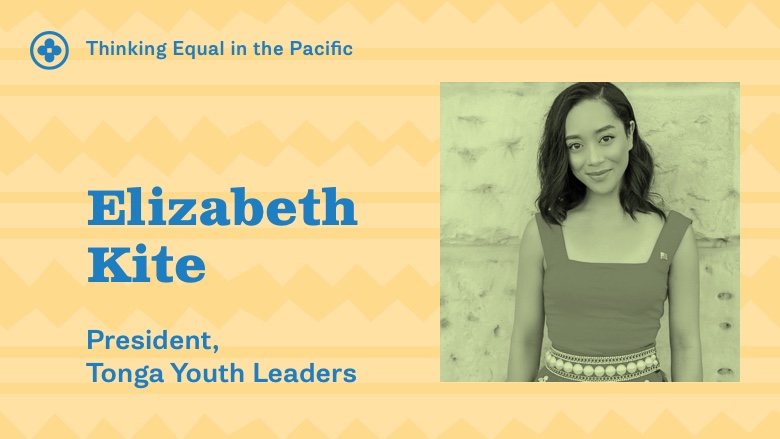What motivates you?
Serving others is what motivates me. I grew up with a Dad in politics who showed me what true patriotism is and that having a bigger purpose in life by also serving those outside your family, being God, King and Country is a duty for us all. My Mum who has the biggest heart showed me what true selflessness and generosity is; it has always been about helping others and I believe that’s my purpose in life, to serve the underrepresented and minority groups that I work with by amplifying their voices which are too often left unheard.
I’ve volunteered and worked with women’s and disability groups over the last five years and during this time I also felt that there was another group being left behind: the young leaders active in addressing some of Tonga’s national issues. These young people were serving everyone else, but were not being given a space to develop and further their skills and leadership.
So, I created Tonga Youth Leaders. Our mission is to inspire and empower young people to a life dedicated to leadership and service. We believe that youth are our country and region’s most valuable asset and so we exist to invest in them and develop their potential. The young leaders we work with are ultimately who’ll become Tonga’s next generation of national and regional leaders. What Tonga and the Pacific really need is good quality, values-based leadership, and so if we invest in these young ambitious and able people, we will start to see the good and necessary changes and reform that our country and region needs.
Why – and how – can Tonga hold on to its best young talent?
I definitely feel strongly about this. The Tonga Youth Council have identified youth unemployment as the biggest issue facing Tonga, and there is so much potential in our young people: they’re bright, they’re passionate, and they’re looking for opportunities.
And if we’re not providing them with those opportunities, then they’re going to leave the country. We lose out on really great people.
What is Tonga Youth Leaders doing to address this challenge?
Tonga Youth Leaders has only existed for a year now, and in that one year we were able to reach over 1,000 young Tongan leaders through our Youth in Politics programme in the lead up to Tonga’s first Youth Parliament in 10 years. The programme educated participants on their political rights and leadership. We also ran a first for Tonga, a Girls Takeover Parliament initiative which brought in 26 young aspiring politicians to discuss national issues in a Parliament setting. These efforts were in partnership with the Fale Alea ‘O Tonga (Parlaiment of Tonga) and help address the lack of youth and female representation in Tongan politics.
Through these programmes we have been able to empower the diverse range of people that make up youth: young girls, to LGBT, to people living with disabilities, and so on. These efforts have also helped us amplify the voices of these underrepresented and minority groups.
Why are initiatives like the Girls Takeover Parliament important?
It’s about helping young women realize their potential.
After the Girls Parliament Takeover, 90 percent of participants said that they want to pursue a career in politics. And yet, currently only two women sit in Parliament. And so we feel this will definitely influence the future makeup of parliament, in a positive way, to better reflect Tongan society. We’re giving them platforms to explore their opportunities. We’ll be doing this every year.
And we’re not just doing it in Tonga: for International Women’s Day we’ll be running a similar Parliamentary event in PNG for the first time. That’s really exciting, as PNG has no women in parliament at the moment.
But what’s strange is that, for Tonga, it’s really only in Parliament. In Tonga, many – even most – CEOs/Leaders are women. We’re actually quite progressive as a country, and yet it’s not reflected in Parliament.
In your view, what do you see as being possible for Tonga, and for the Pacific more generally?
The best way to look at the future is to look at how much we’re investing in our youth.
I feel very confident that we’ll be in a good place. The Pacific will be more inclusive: with women in decision-making, and more inclusive of youth, people with disabilities, LGBTI groups, and others.
I’d also like to say that we will be far better adapted to climate change. If anything, we might be helping bigger nations like Australia to learn how to adapt, as we’re already dealing with these challenges here, today.
And for you?
Helping more people than I am now; more of the community that I represent.
What change would you like to see, to bring greater equality in Tonga?
What I hope to see more of is unity in our efforts to help others and ourselves. Youth led groups in Tonga are leading by example in showing our elders how this can be done and also how important this is for any real progress in addressing any of our national issues.
**The views expressed in this article do not necessarily represent the views of the World Bank Group and its employees.

